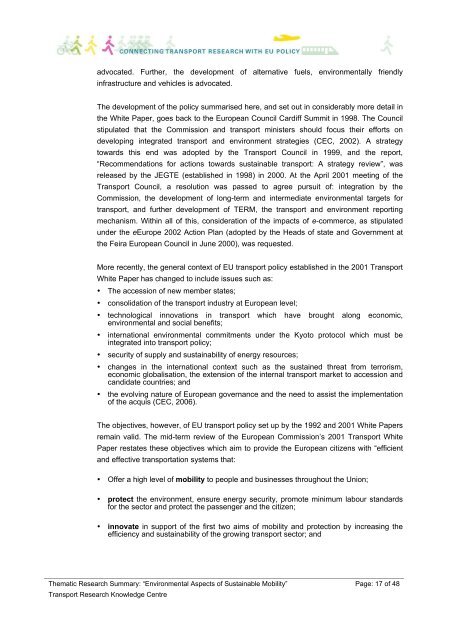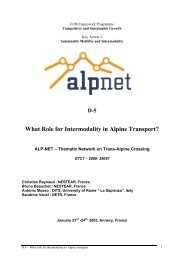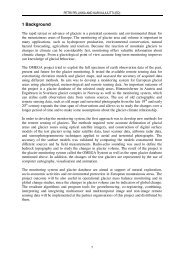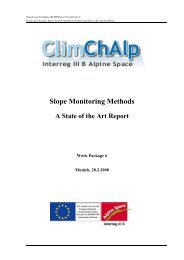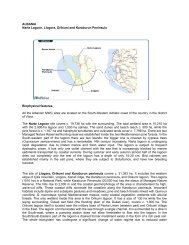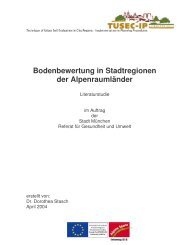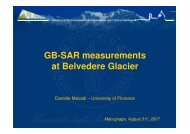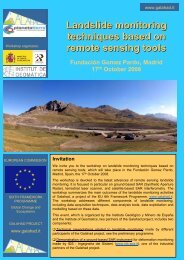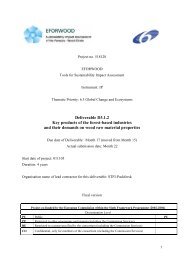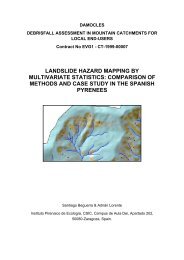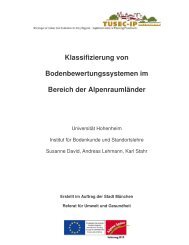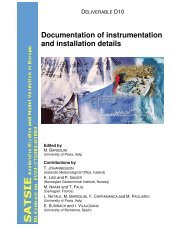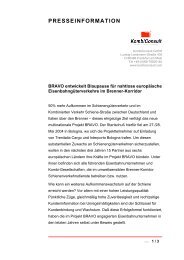Environmental Aspects of Sustainable Mobility - Transport Research ...
Environmental Aspects of Sustainable Mobility - Transport Research ...
Environmental Aspects of Sustainable Mobility - Transport Research ...
Create successful ePaper yourself
Turn your PDF publications into a flip-book with our unique Google optimized e-Paper software.
advocated. Further, the development <strong>of</strong> alternative fuels, environmentally friendlyinfrastructure and vehicles is advocated.The development <strong>of</strong> the policy summarised here, and set out in considerably more detail inthe White Paper, goes back to the European Council Cardiff Summit in 1998. The Councilstipulated that the Commission and transport ministers should focus their efforts ondeveloping integrated transport and environment strategies (CEC, 2002). A strategytowards this end was adopted by the <strong>Transport</strong> Council in 1999, and the report,“Recommendations for actions towards sustainable transport: A strategy review”, wasreleased by the JEGTE (established in 1998) in 2000. At the April 2001 meeting <strong>of</strong> the<strong>Transport</strong> Council, a resolution was passed to agree pursuit <strong>of</strong>: integration by theCommission, the development <strong>of</strong> long-term and intermediate environmental targets fortransport, and further development <strong>of</strong> TERM, the transport and environment reportingmechanism. Within all <strong>of</strong> this, consideration <strong>of</strong> the impacts <strong>of</strong> e-commerce, as stipulatedunder the eEurope 2002 Action Plan (adopted by the Heads <strong>of</strong> state and Government atthe Feira European Council in June 2000), was requested.More recently, the general context <strong>of</strong> EU transport policy established in the 2001 <strong>Transport</strong>White Paper has changed to include issues such as:• The accession <strong>of</strong> new member states;• consolidation <strong>of</strong> the transport industry at European level;• technological innovations in transport which have brought along economic,environmental and social benefits;• international environmental commitments under the Kyoto protocol which must beintegrated into transport policy;• security <strong>of</strong> supply and sustainability <strong>of</strong> energy resources;• changes in the international context such as the sustained threat from terrorism,economic globalisation, the extension <strong>of</strong> the internal transport market to accession andcandidate countries; and• the evolving nature <strong>of</strong> European governance and the need to assist the implementation<strong>of</strong> the acquis (CEC, 2006).The objectives, however, <strong>of</strong> EU transport policy set up by the 1992 and 2001 White Papersremain valid. The mid-term review <strong>of</strong> the European Commission’s 2001 <strong>Transport</strong> WhitePaper restates these objectives which aim to provide the European citizens with “efficientand effective transportation systems that:• Offer a high level <strong>of</strong> mobility to people and businesses throughout the Union;• protect the environment, ensure energy security, promote minimum labour standardsfor the sector and protect the passenger and the citizen;• innovate in support <strong>of</strong> the first two aims <strong>of</strong> mobility and protection by increasing theefficiency and sustainability <strong>of</strong> the growing transport sector; andThematic <strong>Research</strong> Summary: “<strong>Environmental</strong> <strong>Aspects</strong> <strong>of</strong> <strong>Sustainable</strong> <strong>Mobility</strong>” Page: 17 <strong>of</strong> 48<strong>Transport</strong> <strong>Research</strong> Knowledge Centre


